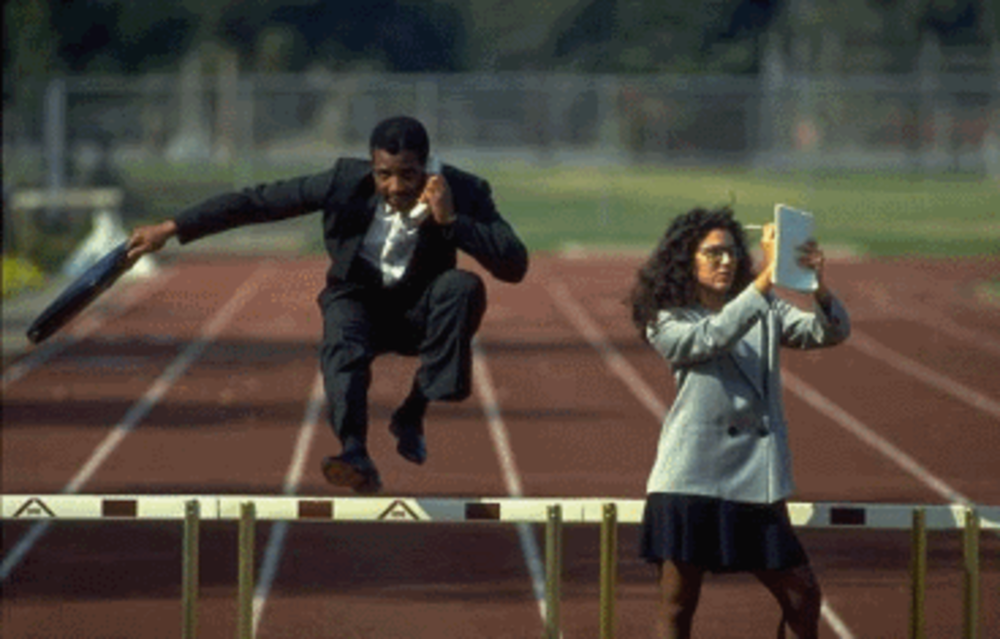Often, the job of the CMO is to drive a change agenda that has enterprise-wide implications—a daunting task that does not come with the guaranteed full support of the rest of the executive team. And one person, alone, cannot drive change.
When disconnect happens around a change agenda, the CMO is likely to fail. In fact, according to a survey by Korn/Ferry, when the CMO is let go, the primary reason (60% of responses) is that the organization was not aligned behind the change agenda. (The second most commonly cited response, at 24%, was that the CMO was not aligned with the CEO about what success looks like and in what time frame. And, often, that lack of alignment is around how fast change is happening.) To keep from becoming one of the failure statistics, CMOs must recognize the importance of creating alignment and building consensus behind the change agenda they’re leading.
The road to change, almost by definition, is never straight and smooth. There are twists and turns; whether the organization is looking to globalize, reinvent its business model or go-to-market strategy, bring in new audiences, create a new value proposition, or launch any significant initiative. The path to pursuing such nonlinear initiatives will be full of roadblocks and obstacles. Perhaps a recalcitrant division isn’t onboard, or the competition makes an unexpected shift; the landscape is in constant flux.
This uncertain territory is often the terrain that greets the CMO who is now driving a change agenda. New thinking and change are most often why a new CMO is brought on board. According to our survey, the most common reason (44% of respondents) for recruiting a CMO from the outside is transformation of the marketing strategy; another (36%) is to bring new skills to the organization. However, if the organization doesn’t have a clear overall mandate for change and isn’t aligned behind the same vision, the CMO’s job becomes that much more difficult—possibly to the point of failure.
Retain unwavering faith that you can and will prevail in the end, regardless of the difficulties – and at the same time have the discipline to confront the most brutal facts of your current reality—whatever they might be.”
—The Stockdale Paradox / Jim Collins
Improving the CMO’s chances for success
Fortunately, there are skills and attributes that can help a CMO succeed in leading the change agenda and dealing with the ambiguity of the change journey. The most important is learning agility, which is defined as the ability to learn from previous experiences and apply those lessons to new and first-time situations. With learning agility, considered the number one predictor of success, a CMO thinks creatively, pursues innovative solutions, knows how to build consensus, and welcomes challenges and obstacles (or at least isn’t daunted by them).
As Korn/Ferry research has shown, CMOs tend to have a higher degree of learning agility than many of their senior executive counterparts. Learning agility brings other advantages, such as enhancing a CMO’s ability to adapt to near-constant change by drawing upon past lessons learned, and yet never over-relying on the tried-and-true.
Learning agility includes abilities such as: mental agility, examining a problem from all sides, and devising unique solutions; change agility, welcoming experimentation and feeling comfortable in a changing environment; results agility, delivering results in new ways; and people agility, bringing together and aligning diverse groups of people and keeping them on board with the change agenda.
Driving change is a tall order, especially for a CMO brought in from the outside. The risks are considerable if there is a lack of organizational alignment behind the plan. However, there are skills and attributes—particularly learning agility—that can give new CMOs an edge in dealing with the ambiguity and hurdles of driving a change agenda, while increasing their chances of success.
| Caren Fleit leads Korn/Ferry International‘s Global Marketing Center of Expertise. She is a Senior Client Partner in the firm’s Consumer/Retail practice, based in New York. |







